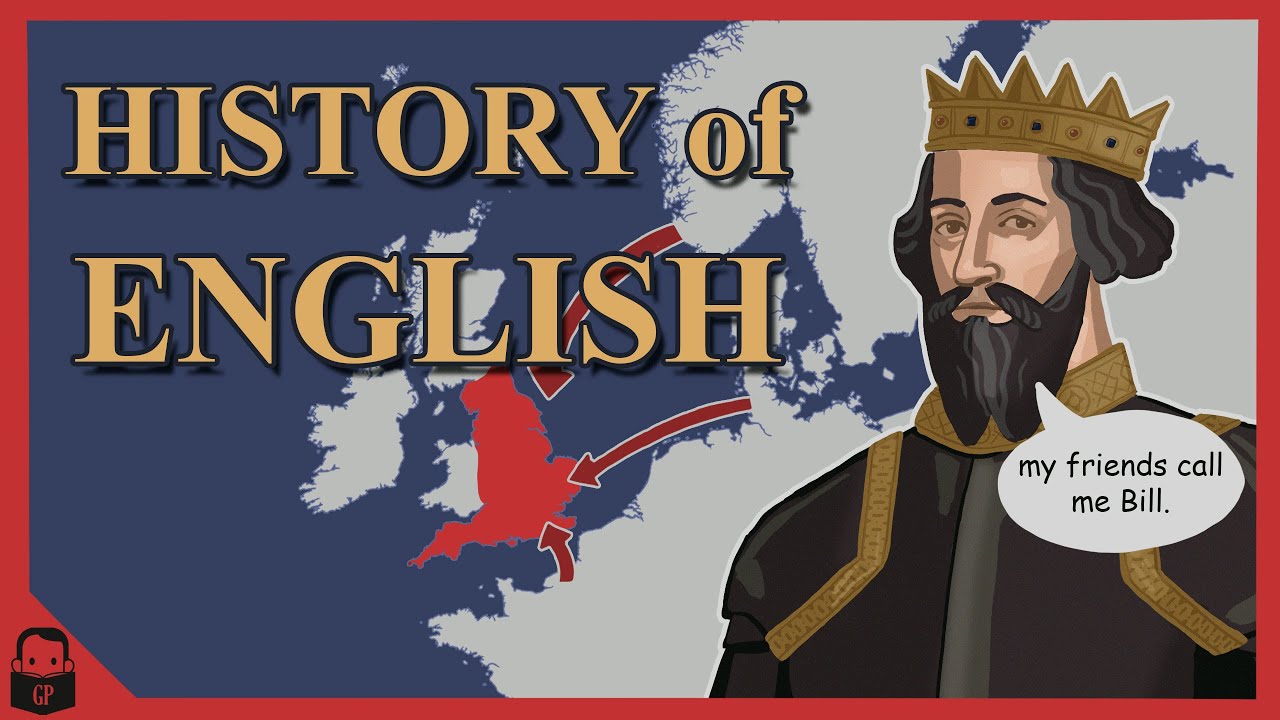How did English evolve? - Kate Gardoqui
Summary
TLDRThis script explores the linguistic evolution of English through history, starting with the Roman rule of the Celts in Britain and the subsequent invasions by Germanic tribes, leading to the formation of Old English. It highlights the influence of Old Norse during Viking invasions and the significant impact of the Norman conquest in 1066, which introduced French and Latin into the language. The script illustrates how the connotations of nobility and peasantry are embedded in the language, with French-origin words often perceived as sophisticated and Saxon words as plain, reflecting the historical social structure of Britain.
Takeaways
- 🏰 The script begins with an imaginative exercise to help understand the connotations of different words.
- 📜 In 400 C.E., the Celts in Britain were under Roman rule, which provided protection from the Saxon tribes.
- 🏹 The fall of the Roman Empire led to the invasion of Germanic tribes, who established their kingdoms in the British Isles and spread the Old English language.
- 👑 The Viking invasions of the 700s resulted in a treaty that divided Britain, mixing Old Norse with Old English.
- 🌐 The Norman Conquest in 1066 brought the French language to the British royalty, creating a social hierarchy with French-speaking aristocrats and Old English-speaking commoners.
- 📖 French and Latin influenced the English language, adding words related to governance and sophistication.
- 📚 The script highlights the historical evolution of the English language and its layers of influence from different cultures and languages.
- 💭 It suggests that the connotations of words are influenced by their historical and cultural origins, such as the association of 'hearty' with Saxon warmth and 'cordial' with French refinement.
- 🎨 The exercise of visualizing scenes helps to understand how synonyms can evoke different images and feelings based on their linguistic roots.
- 🗣️ The script emphasizes that our language carries the history of our culture and society, often in subtle and subconscious ways.
- 🌟 The story of English is a testament to the living legacy of language, reflecting the complex interplay of power, culture, and identity.
Q & A
What was the benefit of the Romans ruling the Celts in Britain?
-The benefit of the Romans ruling the Celts in Britain was that they protected the Celts from the barbarian Saxon tribes of Northern Europe.
What happened when the Roman Empire began to crumble and withdrew from Britain?
-When the Roman Empire began to crumble and withdrew from Britain, the Germanic tribes such as the Angles, Saxons, Jutes, and Frisians quickly sailed across the water, did away with the Celts, and formed kingdoms in the British Isles.
What language became the common language in Britain after the Germanic tribes settled there?
-After the Germanic tribes settled in Britain, their language, Anglo-Saxon, became the common language, which is known as Old English.
How did the Viking invasions in the 700s impact the English language?
-The Viking invasions in the 700s led to a mixing of Old Norse with Old English, incorporating many Old Norse words into the English language, such as 'freckle', 'leg', 'root', 'skin', and 'want'.
What significant event in 1066 brought the French language to the British Isles?
-The Norman Conquest in 1066 brought the French language to the British Isles, as the Normans, who had adopted a French lifestyle, placed a Norman king on the English throne.
How did the French influence the English language after the Norman Conquest?
-The French influenced the English language by introducing many words related to government, law, and aristocracy, such as 'council', 'marriage', 'sovereign', 'govern', 'damage', and 'parliament'.
Why did English speakers begin to use French or Latin words to sound sophisticated?
-English speakers began to use French or Latin words to sound sophisticated because these languages were associated with the French-speaking aristocracy and the Roman Catholic clergymen, symbolizing nobility and authority.
What is the difference between the connotations of 'hearty welcome' and 'cordial reception' as described in the script?
-The connotation of 'hearty welcome' evokes an earthy scene with relatives hugging and talking loudly, possibly drinking beer and wearing casual attire. In contrast, 'cordial reception' suggests a more classy and refined crowd, with people dressed in blazers and skirts, drinking wine and eating caviar.
How do the origins of words like 'hearty' and 'cordial' affect the images they evoke?
-The origins of words affect the images they evoke because 'hearty' is a Saxon word, associated with the earthy and plain, while 'cordial' comes from French, associated with nobility and refinement.
What does the script suggest about the relationship between language and history?
-The script suggests that language is a living record of history, with the connotations and feelings evoked by words being influenced by their historical and cultural origins.
How does the script illustrate the idea that our history lives in the words we speak and hear?
-The script illustrates this idea by showing how the historical events and cultural shifts that influenced the English language continue to affect the way words are perceived and used today.
Outlines

Cette section est réservée aux utilisateurs payants. Améliorez votre compte pour accéder à cette section.
Améliorer maintenantMindmap

Cette section est réservée aux utilisateurs payants. Améliorez votre compte pour accéder à cette section.
Améliorer maintenantKeywords

Cette section est réservée aux utilisateurs payants. Améliorez votre compte pour accéder à cette section.
Améliorer maintenantHighlights

Cette section est réservée aux utilisateurs payants. Améliorez votre compte pour accéder à cette section.
Améliorer maintenantTranscripts

Cette section est réservée aux utilisateurs payants. Améliorez votre compte pour accéder à cette section.
Améliorer maintenantVoir Plus de Vidéos Connexes

Sejarah Nenek Moyang Royal Family (BRITISH EMPIRE)

The History of English Language

OLD & MIDDLE English | E@6 Videopedia | TES | Kalyani Vallath | NTA NET, K SET, G SET, WB SET, GATE

A Short History of the English Language

Where did English come from? - Claire Bowern

A History of the English Language (with subtitles)
5.0 / 5 (0 votes)
